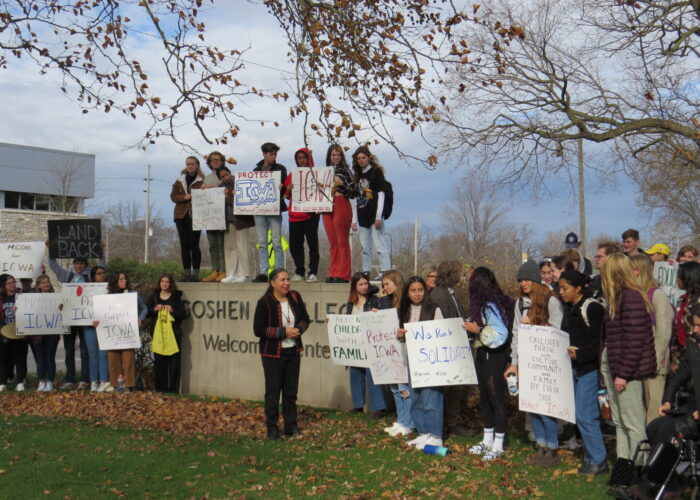I have a polo shirt from the 2003 Mennonite Church USA Assembly that depicts the message of God’s story. It says: “God’s table—Y’all come!” I have long resisted getting rid of the shirt, even though it doesn’t quite fit me very well anymore. I think I’ve kept it because I want to hang on to the message it portrays. It is a message that I believe holds promise for a world made whole. It is a much-needed message that declares the possibilities of healing and hope in a world fractured by suspicion, fear, greed and conflict.
Somewhere, sometime ago, I read the following remark: “If you’re not at the table, you’re on the menu.” I would guess these words were uttered by someone whose experience probably included marginalization and being ignored or intentionally excluded.
I sense the anguish of these experiences and believe that the remark is an assessment of how those with power use it to deprive, disadvantage, and ultimately damage others—you get “eaten up” if you’re not at the table. Access to the table is a matter of conflict and competition. In the minds of those at the table, access must be limited, even denied, to secure their own power and privilege. This is the world’s story—the world’s table is marked by the exclusion of the powerless, the hoarding of privilege by those who have access, and the deprivation and damage inflicted upon those excluded from the table.
God’s design tells a very different story. In God’s story, we learn that God’s table has no capacity limits. At God’s table, all are welcomed; none are excluded. There are no qualifications of ancestry, education, status, or even reputation. Incredibly, in God’s story, we’re told by Jesus, “Take, eat, my body broken for you.” In Jesus, God throws open the doors of welcome and invitation to all people. In stark contrast to the world’s impulse to use power to exclude and deny, Jesus lays down his life so that all may be fed and experience the fullness of life that God intended.
Jesus does not, however, only encourage us to follow his example of self-giving love and welcoming hospitality to aliens, strangers, the poor and the lame, the despised and the rejected. He also invites us to join in God’s project of sharing that welcome with all people everywhere. This is the essence of the kind of evangelism that we believe God still calls us to—sharing the awesome good news that all are welcome at God’s table, that there is plenty for all, and that Jesus himself is the bountiful feast.





